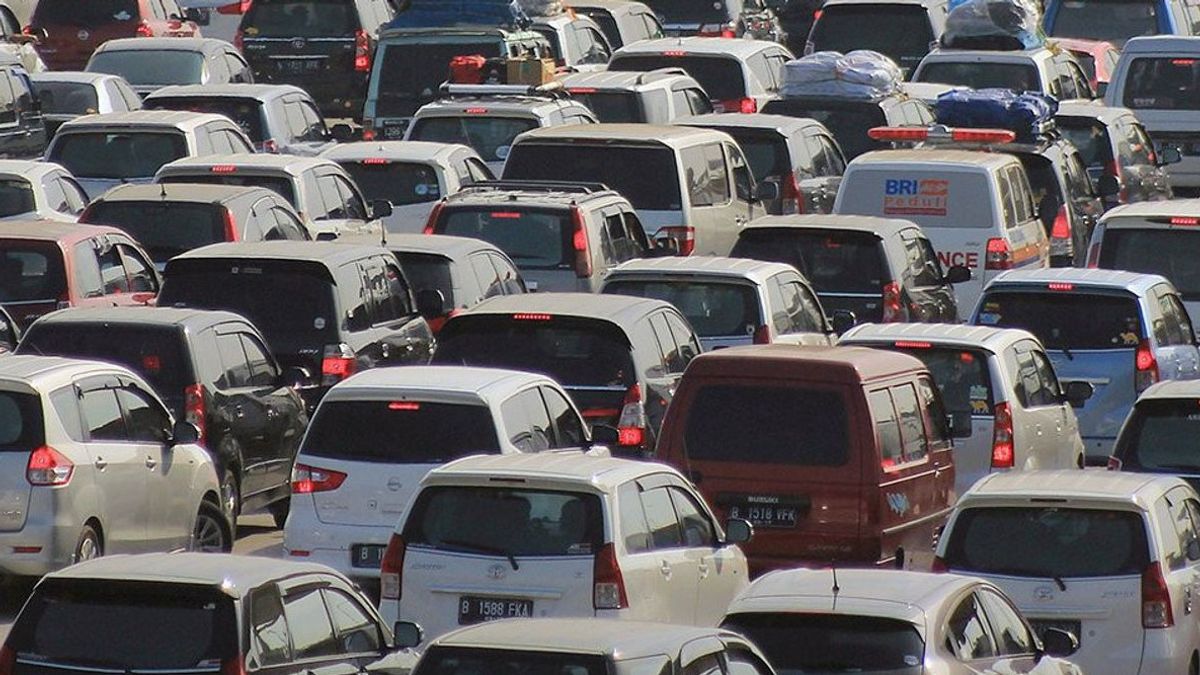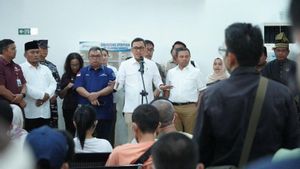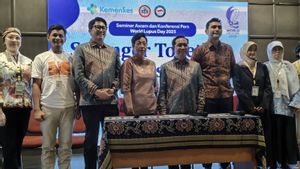JAKARTA - The government will exempt Sales Tax on Luxury Goods (PPnBM) for cars for three months, from March to May 2021. According to Coordinating Minister for Economic Affairs Airlangga Hartarto, this policy aims to encourage the growth of the sluggish automotive sector during the COVID-19 pandemic.
Airlangga estimates that the tax incentive can increase car production by around 81,752 units. That way, he said, there would be a state revenue of Rp1.4 trillion through these incentives.
"This policy will also affect state revenues, which are projected to have a revenue surplus of Rp1.62 trillion," Airlangga was quoted as saying in his written statement, Tuesday, February 16.
Airlangga still hopes that the PPnBM relaxation policy will be supported by a revision of the Financial Services Authority (OJK) policy so that the down payment (DP) for motor vehicle loans can be zero percent from banks and finance companies (leasing).
In line with that, he hopes producers and selling dealers will positively respond to these incentives by providing attractive sales schemes so that the impact will be more optimal. Thus, car sales, which began to rise since July 2020, can continue to increase going forward.
"The hope is that with the incentives provided for motorized vehicles, the consumption of the upper middle income community will increase, increase the utilization of the automotive industry and encourage economic growth in the first quarter of this year," said the Golkar Party Chairman.
Boost production
Meanwhile, Minister of Industry, Agus Gumiwang Kartasasmita, believes that the free car tax can return domestic car production to the level of 1 million units. This could be done before the COVID-19 pandemic.
"Last year, car production in Indonesia fell by around 46 percent to 690,150 units due to the pandemic," said Agus as quoted by Antara.
He said the automotive sector is important for the economy, because it involves many supporting sectors. In addition, the automotive sector has an average added value of IDR 700 trillion, and 91.6 percent of the automotive market is supplied by local industries with a domestic content level (TKDN) of 60 percent-70 percent.
For information, the amount of the car tax discount has fallen to 50 percent from the normal rate in the following three months. Then, it becomes 25 percent of the normal rate for the next four months.
The tax discount is given for motorized vehicles with a segment of less or equal to 1,500 cc for the sedan and 4x2 categories. This segment was chosen because it is a segment that is of interest to the middle class and has local purchases above 70 percent.
[/ read_more]
YLKI values this instant policyChief Executive of the Indonesian Consumers Foundation (YLKI) Tulus Abadi criticized the plan to implement government-borne luxury goods sales incentives (PPnBM-DTP) for four-wheeled vehicles starting March 1.
The reason is that the policy tends to have a negative impact in the form of additional congestion as a result of the ease of getting a private vehicle.
"I think this is an instant policy and the government is not thinking about what the long-term impact will be," he told VOI, Tuesday, February 16.
According to Tulus, this rule clearly provides a red carpet for automotive businesses as well as potential consumers who will buy a new vehicle. In fact, it is possible for people who already own four-wheeled vehicles to increase their car collection to more than one unit.
"If the reason is to spur the economy from the sluggish automotive industry, why does this incentive not target sectors that absorb more workers such as MSMEs? We see a tendency to selective cutting in the stipulation of this rule," he said.
It is feared that public transportation will be devoid of enthusiasts
Apart from traffic jams, he also highlighted the potential use of mass public transportation, which could be devoid of enthusiasts.
"However, private vehicles are definitely more comfortable than public transportation. If you can drive a private vehicle, why do you have to take public transportation? This is not in accordance with the program that is being pushed by the government itself to use public transportation to reduce congestion," he explained.
"I am worried that mass public transportation such as Transjakarta, KRL Jabodetabek, and the MRT can be empty of passengers. A simple example can be seen from ordinary public transportation, which is like being injected with death, lacking passengers," he continued.
If the government really wants to encourage car sales, said Tulus, it must be accompanied by a special regulation that can keep the use of vehicles from piling up at the same time. For example, the expansion of odd-even policies, regulations on fuel use, to restrictions on vehicle life.
"If necessary, we follow Singapore, which stipulates that each person can only have one STNK (vehicle registration certificate)," he said.
[/ read_more]
The English, Chinese, Japanese, Arabic, and French versions are automatically generated by the AI. So there may still be inaccuracies in translating, please always see Indonesian as our main language. (system supported by DigitalSiber.id)













